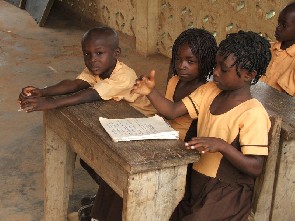Barely a week after a major debate about the dwindling quality of education in Ghana, a new survey has also revealed that majority of pupils in basic schools can neither read nor understand English or any Ghanaian Language properly.
of pupils in basic schools can neither read nor understand English or any Ghanaian Language properly.
This was published in the National Education Assessment (NEA) report. The survey was carried out by the Assessment Services Unit (ASU) of the Ghana Education Service (GES), with support from the Research Triangle International (RTI). The project was funded by the USAID.
The NEA report is a biennial national and regional representative measure of pupils’ competence in Mathematics and English in primary three and six.
According to the report, only 2 per cent of basic school children sampled are able to read fluently with understanding.
The report followed a survey carried out from July 9 to 11, 2013 that sampled a total of 19,458 pupils in primary three and 17,447 pupils in primary six with 550 public and private schools in 170 districts in Ghana.
It aims at measuring pupils’ performance in the two subjects and intends to give the GES an indicator of the effectiveness of primary education system.
Commenting on the outcome of the report, the immediate past President of the Ghana Book Publishers Association, Elliot Agyare said: “Reading has not been developed as a habit for majority of our children. Secondly, we also assume that we will become readers without adequate resources. We all complain that the libraries are non-existent in this country and schools have not been resourced with books. As long as schools don’t have books and the children don’t have books that they don’t enjoy reading you don’t expect them to read.”
He added that, “it will be a fallacy to think that all teachers are adequately resourced to teach reading in schools.”
Mr. Agyare suggested that Ghana can adopt United States of America’s “no child left behind” reading programme “which teaches children how to read until they enjoy it and becomes a habit.”
He urged the education sector managers to start a campaign that emphasizes the importance of reading and teachers need to be trained on how to teach reading in the classes.





